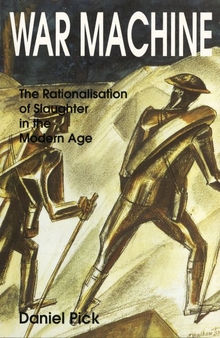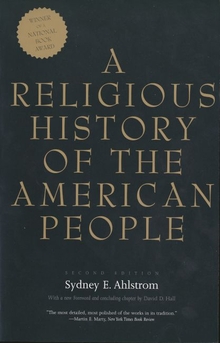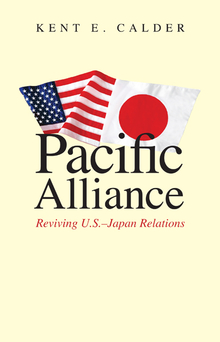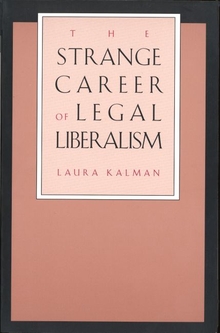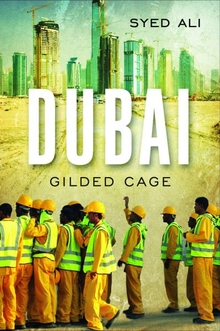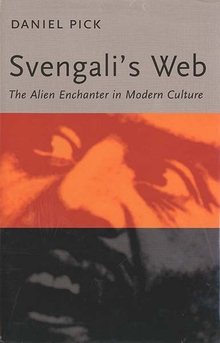War Machine
WARNING
You are viewing an older version of the Yalebooks website. Please visit out new website with more updated information and a better user experience: https://www.yalebooks.com
The Rationalisation of Slaughter in the Modern Age
Daniel Pick
This fascinating book examines Western perceptions of war in and beyond the nineteenth century, surveying the writings of novelists, anthropologists, psychiatrists, poets, natural scientists, and journalists to trace the origins of modern philosophies about the nature of war and conflict.
Daniel Pick compares philosophical and historical models of conflict with fictions of invasion and biological speculation about the nature and value of conquest. He discusses the work of such familiar commentators on war as Clausewitz, Engels, and von Bernhardi, and examines little-known writings by Proudhon, De Quincey, Ruskin, Valery, and many others. He explores nineteenth-century English fears of French contamination through the Channel Tunnel and the widespread continuing dread of German domination. And he analyzes the history of the widely-shared European belief that war is beneficial or at least functionally necessary.
A central theme of the book is the disturbing relationship between machinery and destruction. According to Pick, relentless technological progress and the irresistible rise of the military-industrial complex risks turning conflict into little more than a sophisticated game played out by high-precision automata. Shorn of human agency or responsibility, war could become technologically unstoppable, a flawless mechanism for human slaughter.
Daniel Pick compares philosophical and historical models of conflict with fictions of invasion and biological speculation about the nature and value of conquest. He discusses the work of such familiar commentators on war as Clausewitz, Engels, and von Bernhardi, and examines little-known writings by Proudhon, De Quincey, Ruskin, Valery, and many others. He explores nineteenth-century English fears of French contamination through the Channel Tunnel and the widespread continuing dread of German domination. And he analyzes the history of the widely-shared European belief that war is beneficial or at least functionally necessary.
A central theme of the book is the disturbing relationship between machinery and destruction. According to Pick, relentless technological progress and the irresistible rise of the military-industrial complex risks turning conflict into little more than a sophisticated game played out by high-precision automata. Shorn of human agency or responsibility, war could become technologically unstoppable, a flawless mechanism for human slaughter.
Daniel Pick is lecturer in history at Queen Mary and Westfield College, the University of London.
"[War Machine] is a rich quarry of fascinating ideas about psychic, mythical and ideological influences on war, pointing the way to further research into an area which is so scandalously ignored by those who think war a mathematically calculable outcome of a balance of power formula."—Beatrice Heuser, History Today
"War Machine provides a brilliant and highly articulate cultural and intellectual history. . .It is a magnificent and highly original achievement, a stunning illustration of the power and sophistication of cultural history at its best."— Michael Heffernan, Ecumene
"Stimulating. . . . The breadth of reading, the range of sources and the author's ability to move effortlessly between half a dozen different disciplines is deeply impressive. There is a real mind at work here, and the thought process is consistently absorbing."—Frank McLynn, Literary Review
"The 'interconnecting resonances' set up by judicious citation . . . are powerful, persuasive and thought provoking. . . . Pick demonstrates his skill in drawing different sources together to reveal their overlapping nuances."—Geoff Dyer, The Independent
"Daniel Pick, in his timely new study of how war came to be justified in the 20th century, provides a hundred reasons why no country should ever get involved in fighting."—Walter Ellis, The Times (London)
"This is a clever, interesting and in many ways learned book. It is also a brave one, since the analogy with the slaughterhouse has been in the air for some time, without any historian quite daring to take it up."—John Keegan, The Sunday Telegraph
"Continuously intelligent and concerned, cogently argued, well-informed. . . . I fear this excellent book will always be timely."—Tony Tanner, The European
"Pick offers a comprehensive and stimulating overview of the changing perception of war in 19th-century European culture and politics."—Library Journal
"In a brilliant work of cultural analysis, Pick has mined some curious disparate areas and been rewarded with remarkable material for study."—The Observer
"Profound. . . . A fascinating book."—Martin Pawley, The Guardian
"A provocative and controversial book."—Conflict Bulletin
"[An] original, eclectic, and personal study. . . . Pick has cast his net widely to survey a broad sample of political, literary, economic, and psychological works of Europe's most important thinkers and writers."—Choice
"He injects consistently fresh and sometimes sparkling ideas into debates that threaten to become humdrum. . . . Pick's is a bravura performance. . . . He provides in this richly rewarding book, a fine example of what the new cultural history can achieve."—Modris Eksteins, Journal of Historical Geography
"A work of exceptional erudition and insight."—Simon Dixon, War in History
"Pick's new book is impressively panoramic, stimulating, and produced attractively."—Mathew Thomson, German History
ISBN: 9780300067194
Publication Date: April 24, 1996
Publication Date: April 24, 1996
300 pages, 6 1/4 x 9 1/2
11 b/w illus.
11 b/w illus.

